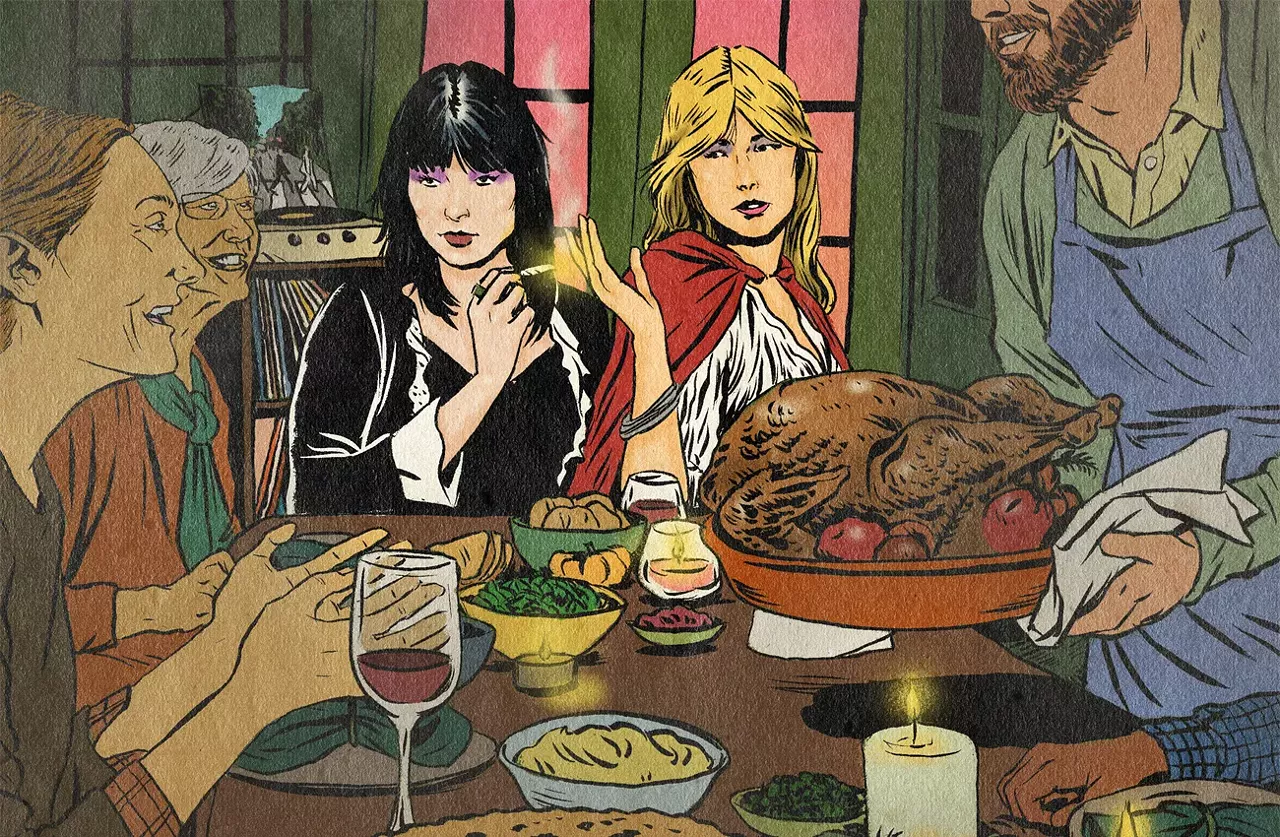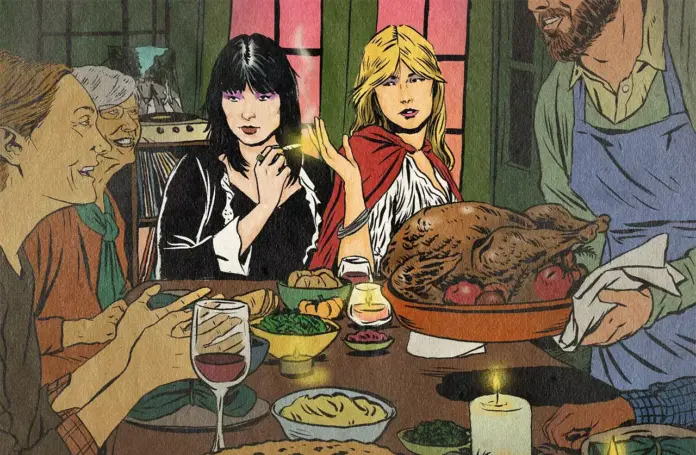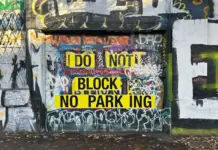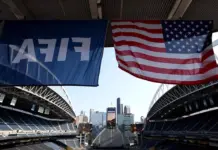This post was originally published on this site
Heart’s spell is enduring. I’ve been under it since I was 10, the tomboy middle sister of three who played the drums, practiced karate, and took music recommendations from my dad. I don’t recall the first time I heard hits like “Barracuda” or “Crazy on You,” but they were always there for me to angrily lip-sync in the mirror when I felt disenfranchised by adults. I worshipped them the way that I saw boys my age worship Led Zeppelin and AC/DC—two bands I never liked. I didn’t prefer Heart because I identified with their femaleness, I preferred Heart because their songs were better.
In Heart’s music, you feel what they feel; they don’t have to say it explicitly. Ann’s lyrics are poetic, Nancy’s guitar solos are nuanced; both are masters of subtlety and power. The way the Wilson sisters communicated through their instruments was something I knew well with my own sisters—a magical connection that can only be described as sorcery.
I was excited for the chance to chat with the Wilson sisters about forthcoming projects, their own teenage music idols, and their Thanksgiving plans. Oh, and smoking weed (a real full-circle moment considering that I rolled my first joint on an LP copy of Dreamboat Annie).
I recently read your 2012 memoir, Kicking and Dreaming, which mentions the time you got high with your parents. Can you tell me what you remember about that experience?
ANN: It was one of the most surreal things that has ever happened to me. We were up in our room playing guitars, and our parents had a cocktail party going on downstairs. Someone came up and knocked on the door to tell us that our parents wanted to see us downstairs. I thought, “Oh no, they are going to get divorced.”
NANCY: I thought we were totally in trouble because of the even worse stuff we’d been doing. But they were like, “We’ve tried pot in an attempt to bridge the generation gap.” We were so relieved. But then, they said, “We would like to smoke with you to bridge the gap between our generations.” So, after dinner that night, with our candles lit and music on, we passed a joint around the dinner table with our parents and some of their hip friends from church. We put on Abbey Road by the Beatles because we all loved it, and it was a beautiful point of connection for us. I could hardly enjoy the music, because I was in shock. My whole psyche was screaming, “I’M GUILTY! I’m supposed to be guilty! I’m supposed to be guilty, but I’m getting away with something!”
ANN: The weirdest part was seeing my mother’s face while high, and knowing that she was high, too! It was incredibly hilarious and also surreal.
NANCY: It was an experience I never, ever wanted to have again, and thankfully one I never did have again! It’s also not an experience I would ever suggest that anyone have! [Laughs]
Wow, that scene needs to be in a movie at some point.
NANCY: Actually, there is a movie in progress. Carrie Brownstein of Sleater-Kinney has been writing it with us, and she will probably direct it, too. There were a lot of actresses who raised their hands after the first draft. I think Florence Pugh and Anne Hathaway. Also, the Fanning sisters, Dakota and Elle. There’s no way to know at this point yet, but it’s just fun to think about.
The memoir was written with Seattle-based writer Charles R. Cross, who died last year. What was it like to work with him on your memoir?
ANN: Charlie was a really amazing listener. I had read his books about Kurt Cobain and Jimi Hendrix, and I just loved them—they were great rock ’n’ roll stories with a fantastic sense of place in the Pacific Northwest. I knew that Charlie was the one who could write the Heart story. He was an incredibly intelligent person, a great writer, and a famous rock ’n’ roller.
NANCY: He was the coolest of the cool. He was so passionate about his love of music and all things creative. I really like how he put the book together. I think the book itself was kind of the blueprint for Carrie Brownstein’s first draft of the script. He was such a lovely friend to have, and we stayed in touch even after we did the book together.
Nancy, you recently joined Chappell Roan on stage to play “Barracuda.” How did that collaboration come about?
NANCY: Just from looking at social media, we were aware that she was putting “Barracuda” in her set almost every night. I thought, “Wow! She’s brave to do that.” It’s really a hard song to sing, and she nails it every time. My hubby, Geoff, suggested that I reach out to her. Chappell and her band were like, “We would be so honored!”
The amazing thing for me was to see Chappell-mania up close. There were a lot of passionate young people screaming every song at the top of their lungs. It was really inspirational. I love to see it happen at Heart shows, too—just to see how meaningful the songs are to people, how they soundtrack their lives, and how the songs are a mirror for them to reflect themselves in. It was beautiful to see the fulfillment of the promise of music reciprocally being shared. That’s what it’s all about.
What do you remember about seeing the Beatles live at the Seattle Center Coliseum in 1964?
ANN: I mostly remember that no one could hear the Beatles because of all the girls screaming. You couldn’t hear a thing. You could only hear a sound like jet engines, and it was the girls shrieking.
NANCY: It was beyond anything we teenagers had ever lived through. Ann and I had an all-girl band called the Viewpoints at the time. We had our mom sew us military jackets—the same ones that the Beatles had been wearing on their tour—to match them. We had our little band watching, you know, with opera glasses, so we could actually see.
The Brownie flash bulbs were like explosions all through the air, just from people taking flash pictures of each other. When Ringo’s kick drum showed up with the Beatles logo on it, Mal Evans, their roadie, carried it out, set it up on their stage. Every flash in the entire place went off at once. It was like daytime. When the Beatles finally showed up, it was a roar of screams. It came in waves; you could hear a little bit of music, then one of them would tap their foot, and the screaming would start up again. It was really life-altering and a really cool thing to be alive for. From the minute we saw the Beatles on TV, we knew that we had to be in music.

Nancy, I also read that you once hitchhiked to Canada in an attempt to find Joni Mitchell. Since then, have you met Joni?
NANCY: I absolutely got to meet her. My high school friend and I were the wild ones who went on a pilgrimage, hitchhiking to find Joni. Years later, when I was living with Cameron Crowe and working on scores for his films like Jerry Maguire and Almost Famous, I got a chance to meet Joni Mitchell and have dinner at this little place called the Four Oaks Restaurant near Laurel Canyon—it was a famous hippie hangout. She’s really cool. She’s hyper-intelligent, obviously. And she loves to talk about herself and tell her stories. She just kind of chain-smoked and drank cappuccinos. Ever since then, I only order cappuccinos. I’ve always fancied myself as a kind of wannabe of hers, the prowess of her poetry inventions and everything she gave us, but she was also a great friend who I hung out with every once in a while.
When I told her, it was really embarrassing. I was like, “You know the crazy stories of youth? Me and my crazy, wild-child girlfriend, who I’m still tight with, who I’m still a Joni fanatic together with, hitchhiked up to Sechelt to try to find you in your cabin where you were writing our life stories in your music.” She got a pretty big kick out of that.
I’m obsessed with Heart’s 1970s medieval revival style. Have you kept stage outfits from over the years? Where are your outfits from the Little Queen album cover?
ANN: Most of them are still around, either in the care of me or the woman who made them. A few of them are in Hard Rock Cafes around the world, in Brazil, Vegas, Orlando, all over the place.
NANCY: We have some of our medieval stuff from the Little Queen era. That stuff was the coolest. I think that was the best era. When we went to do the album cover photo shoot for Little Queen, we rented a wagon, some goats, and a bow and arrow. We’ve kept artifacts like the crystal ball, tool boxes, and shawls that were thrown around—stuff like that. We still have some of the ’80s outfits, too. We call them “Cadillacs” because some of them were as expensive to have made as cars. [Laughs]
Ann, what was it like to revisit old home movies and memories during the creation of your upcoming documentary, Ann Wilson: In My Voice?
ANN: It was very surreal! I was doing some work on the documentary recently and looking at some slides from my teenage years. It’s so wonderful to see all of those faces again. There were people I could barely recognize now—friends of my parents, and my parents, who are now deceased. It’s so nice to see them vibrant and in their 30s.
What are the best parts about being in a band with your sister? What are the biggest challenges?
NANCY: The best part is obvious: being on stage together. The hardest part is what surrounds the nucleus of what we have on stage—all the politics, power trips, and the people who try to take control. We have the actual control—the two of us—because we are the captains of the ship. The hardest part is knowing exactly how to steer the ship and how to, at this point in the band’s legacy, make the biggest footprint. The songs are going to be there long after we’re gone. I just want to make the right decisions so that the end of our story is impactful and that we can have the smoothest victory lap possible.
Let’s end with a fun question. Your Seattle date is four days before Thanksgiving—what are your holiday plans? Do you have any signature dishes or traditions in your family?
NANCY: Oh, totally. We always have a big get-together. We grew up like that, and there are signature dishes a-go-go. There’s grandma’s candied yams, which I like to make. And the pie, of course, made with apples from our apple tree. And the turkey, although sometimes we do more of a vegetarian-forward meal with just a small side of turkey. I love cooking, so I don’t mind it. I always love getting together with family, and the part when people say, “I’m grateful for…” I think that’s a really important annual tradition to carry on. It’s important to take a breather from all the dark stuff swirling around.
I’m really grateful for my life, for being a musician this entire time, and for knowing what I was destined to be. I feel luckier and luckier every year that my whole life’s work has been music. I don’t know what it would have been otherwise. I want to acknowledge and feel grateful for that.
See Heart with Cheap Trick at Climate Pledge Arena on Nov 23 at 7 pm.



















